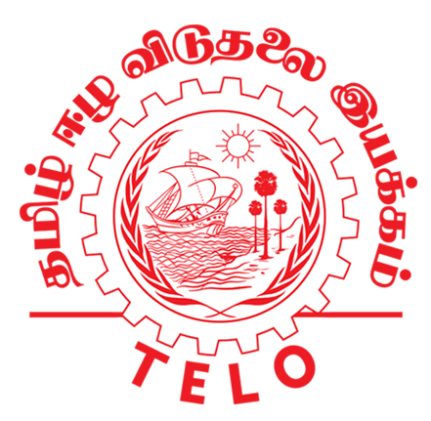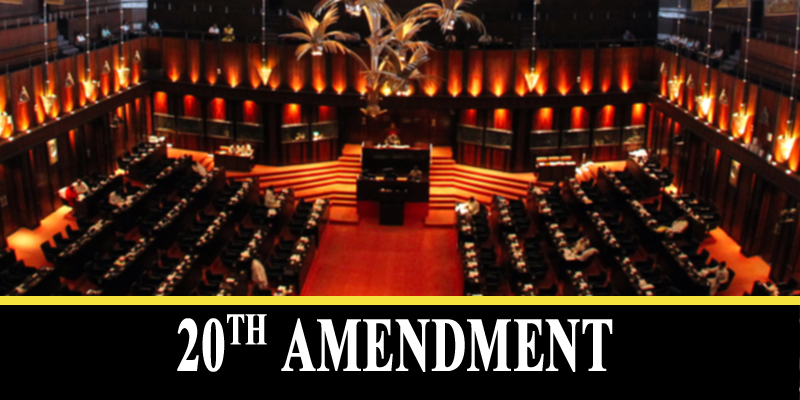The Civil Society Platform (CSP) says President Gotabaya Rajapaksa’s call for a dialogue between his government and the expatriate Tamils is not realistic. President Rajapaksa made the declaration in talks with UN Secretary General Antonio Guterres. CSP says an environment conducive for such an initiative is not available at the moment.
Dr. Ms. Nimalka Fernando was a member of the Office on the Missing Persons (OMP) from 2018-2021 and Brito Fernando, Chairperson of Families of the Disappeared in Sri Lanka issued the following statement in response to The Island query:
“When Sri Lanka co-sponsored the UNHRC Resolution 30/1 in Oct 1, 2015, the then Foreign Minister the late Mangala Samaraweera, informed the Human Rights Council that the Government would initiate a domestic mechanism after consulting the victims and survivors.
The Government established a Secretariat to Coordinate Reconciliation Mechanisms (SCRM) to coordinate the domestic mechanisms. After a lengthy public consultation process,conducted by Consultation Task Force on Reconciliation Mechanisms, chaired by the late Ms. Manouri Muttetuwegama, a comprehensive report was published.
Based on the recommendations of the Task Force, domestic or internal mechanisms were established. Office on Missing Persons (OMP) was established for truth seeking, while Office for Reparations (OR) was created to address the issue of Reparations. The independence of these institutions had been guaranteed as appointments to these mechanisms were done by the President, based on the recommendations of the Constitutional Council created by the 19th Amendment to the Constitution.
Those were the steps taken to establish credible domestic mechanisms.
The present government distanced itself from the UNHRC Resolution 30/1 in March 2020. It dissolved the Secretariat to Coordinate Reconciliation Mechanisms. The government continues to maintain two domestic mechanisms created under the UNHRC resolution 30/1. However, the enactment of the 20th Amendment to the Constitution has impacted on the very nature of the independence of the two existing domestic mechanisms with the Constitutional Council being replaced by the Parliamentary Council.
The appointment of members to these mechanisms are now vested in the President in his discretion. The Parliamentary Council can only direct observations related to the nominees given by the President. Thus the independence of the two mechanisms are seriously compromised and the confidence of victims and survivors, which is of paramount importance for the success of any mechanism, has eroded.
According to the statement by the PMD, the President has said that the internal issues of Sri Lanka should be resolved through an internal mechanism of the country and he has further said that the Tamil Diaspora would be invited for discussions in this regard. The previous government has engaged with the Tamil diaspora groups as stakeholders of the domestic reconciliation process. However, in February 2021, Secretary to the Ministry of Defence has proscribed seven prominent organisations of Tamil diaspora including the Global Tamil Forum, British Tamil Forum and Canadian Tamil Congress, and hundreds of individuals, by listing them under the United Nations Act No. 45 of 1968.
Some of the individuals and organisations have been actively engaged in building the domestic reconciliation mechanisms in Sri Lanka during the previous government. While appreciating the President for extending an invitation for dialogue to the Tamil diaspora organisations, we note that continuation of the proscription of organizations and individuals is counterproductive to achieve this goal. Wouldn’t it be necessary to take steps to delisting these individuals and organisations in order to facilitate the genuine engagements and dialogue?
Civil Society Platform has noted the President’s assurance of continued engagement with civil society organisations to bring about development and reconciliation in the country. However, this policy has to be reflected at the grass-root level. We have credible reports where civil society organisations working at community level with victims and survivors are subjected to surveillance and harassment. It is important that the Government and the civil society agree on issues of common concern in order to have a meaningful dialogue with an aim to achieve deliverable targets in achieving reconciliation and development.
We note with concern the statement of the President referring to issuing death certificates to the families of the missing and the disappeared. Prior to providing them with the death certificates it is important that circumstances related to the disappearances be investigated based on the information provided by families. Further information is also available in the previously appointed Presidential Commissions of Inquiry including the Lessons Learnt and Reconciliation Commission (LLRC) and Paranagama Commission. It is the responsibility of the State to account for each individual who has disappeared. The basic principle of accountability is linked to ascertaining the truth related to the disappearance. The issuance of death certificates is a complex issue. Even families in the south whose loved ones disappeared in the 1989 era are contesting the death certificates they have received. It is a grieving community that requires an honest and credible process. If we are honest about what happened, then healing becomes easier. If we hide information the scars will remain forever, festering.
The government has failed to even facilitate the granting of the interim-relief of Rs 6000/- approved in October 2019 by the previous government as recommended by the interim recommendations of the OMP. No doubt the government is presently developing a compensation package. But the families need the interim relief very badly. They too have been affected by the Covid-19 pandemic. Requests made to the authorities to include the families of the disappeared too under the Covid-19 relief package have gone unanswered. Letters sent to the Ministry of Justice, which is the line ministry responsible for the payment of Rs 6000/- remains unanswered.
We believe that the Civil Society Organisations and NGOs can be partners in development and reconciliation. Historically, we have been engaged with every government and we are willing to engage with this government too. But, we need to do so, maintaining our independence and remaining as a critical mass affirming the principles of Freedom of Expression, Freedom of Assembly and Freedom of Association.”





